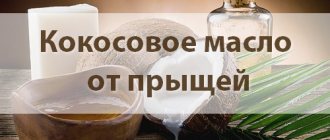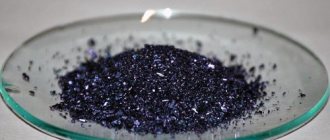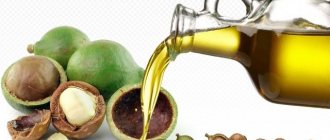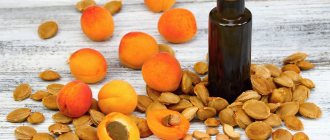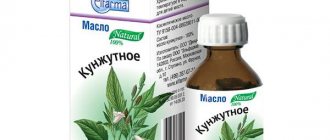Today, the topic of healthy lifestyle (healthy lifestyle) interests many people and is gaining increasing popularity. For some, this is a tribute to fashion (after all, today many stars and popular bloggers talk about this), others pursue ethical motives, and for others, their whole life is a healthy lifestyle. But, whatever the motivation, it is important to exercise common sense and understand the essence of the issue. People assume that a healthy lifestyle means giving up bad habits, proper nutrition, daily exercise, and hashtags on social networks like #healthy lifestyle, #pp, #sports, #detox, #vegetarianism, #eco, etc. (and I’m not trying to be sarcastic about the latter, because in our age of information progress, for many this is an incentive to rethink and change in life). But that is not all. Yes, of course, after giving up bad habits, as well as products containing animal protein, chemical pigments, flavors, stabilizers, flavor enhancers and other additives, your overall health will noticeably improve.
However, in addition to what we immerse ourselves, we should not forget about what we apply to ourselves, directly to the body. These are the so-called personal hygiene products: soap, cream, shower gel, shampoo, toothpaste, etc. Our skin and mucous membranes are designed in such a way that, despite their protective functions, they are able to absorb what we apply to them. Of course, if the skin absorbed everything that came into contact with it, it would be very difficult for us to live, because then a lot of substances harmful to health (and sometimes to life!) would enter the bloodstream. To avoid this, nature provided the protective functions of the skin. The main such protection is the epidermal barrier. It consists of dead epidermal cells (the top layer of skin), which are held together by a layer of fat. To overcome such a barrier, substances in contact with the skin must be fat-soluble and microscopic in size. Water and water-soluble substances cannot overcome such a barrier. Additional protection (including from harmful bacteria) is the acidic pH of the skin, since they (bacteria) are characterized by a more alkaline environment. But any defense can be weakened. It’s the same with skin: if we take care of it incorrectly or illiterately, not only do we not help, but we can also harm ourselves.
There is an opinion that you should only apply to your body what you are ready to eat (but remember: without fanaticism!). Someone will assume that this is absurd and such products do not exist in nature at all. But if you study the material a little deeper, you will quickly understand that such universal products exist and there are not so few of them. One of them is coconut oil. It truly belongs to the multifaceted and exceptional products with excellent composition and the widest range of applications.
Coconut oil production is a fairly complex process. First of all, you need to wait for the coconut to ripen to the required state. This happens when the liquid inside the nut (coconut water) begins to emulsify (coconut milk) and thicken, i.e., pulp is formed. It is the coconut pulp (called “copra”) that is used to extract oil, but first it must be separated from the shell, dried and crushed. Next, the crushed copra is pressed and oil is obtained. It has a firm consistency, white color, delicately sweet aroma and a pleasant nutty taste.
Several types of coconut oil
To make coconut oil, hot or cold pressing is used. The hot pressing method is more common, although cold pressing produces higher quality oil and has greater nutritional and biological value. Like other oils, coconut oil is available in refined form (it does not have the typical smell and taste of coconut, it is used for skin and hair care) and unrefined (it has the aroma characteristic of coconut). It is preferable to use (especially if you use it for food) unrefined cold-pressed oil, as it will be endowed with maximum benefits and quality.
So what does coconut oil have that other oils don't? How is it unique?
Beauty and care
Mila Supinskaya/Shutterstock.com 1. Cuticle care . Using coconut oil, you can get rid of dry and flaky cuticles by simply rubbing it into the skin around your nail beds. Additionally, you will also moisturize your hands while doing this.
2. Moisturize your hair . Coconut oil is a natural alternative to commercial hair conditioners. The fatty acids it contains soften strands and do not contain additional chemicals that are included in conditioners. Quick hair mask recipe: mix coconut oil with honey, apply to hair, leave for 40 minutes and rinse with your regular shampoo. You can also prevent split ends by applying a little coconut oil to your hair before each wash.
3. Styling . If your hair is prone to frizz in humid weather, apply just a little coconut oil to problem areas. It will create a protective film that does not allow moisture to pass through.
4. Care for dull skin . Coconut oil will also bring back the color and shine to your skin. Simply mix some oil with baking soda (baking soda is a great natural scrub) and apply it to your face using gentle circular motions and massage a little. After this, rinse off the mask with warm water.
5. Antibacterial face mask . Another recipe for a quick homemade face mask with moisturizing and antibacterial properties is coconut oil and honey. Mix these two ingredients together and apply to clean face for 15 minutes, then rinse with warm water.
6. Moisturize your lips . Mixing coconut oil with brown sugar makes a great lip scrub, and applying just coconut oil makes a natural alternative to chapstick.
7. Body care . Mix coconut oil with salt or brown sugar, add a few drops of essential oil and you have a body scrub. You can also add coconut oil to your bath water to moisturize your skin.
8. Lip gloss . If you have a favorite lipstick that has already run out, you can take the remaining lipstick out of the applicator, mix it with coconut oil, and you have a lip gloss.
9. Makeup removal . Coconut oil can be used to remove makeup or make-up by simply applying it to the skin, leaving it on for 5 minutes and then wiping off with a damp cloth. You can also remove waterproof mascara from your eyelashes.
10. Instead of shaving cream . Coconut oil can also be an excellent substitute for shaving cream, as it improves the glide of the blades and moisturizes the skin. Especially good for people with sensitive skin.
11. Fight acne . To reduce skin inflammation and irritation, apply a thin layer of coconut oil after your normal cleansing routine. It has bactericidal properties and will create a protective layer.
12. Prevent wrinkles. Coconut oil will be a good alternative to expensive anti-aging creams and serums, minimizing the appearance of wrinkles. Simply apply a little oil to the skin around your eyes and massage gently.
13. Scalp care. Massaging your scalp with coconut oil will help get rid of dandruff and prevent it from recurring.
14. Sunburn. If you're sunburned, applying a little coconut oil to the reddened areas will reduce irritation, moisturize your skin, and minimize peeling.
15. Eczema. Since coconut oil has anti-inflammatory and moisturizing properties, it will help reduce itching and irritation on skin affected by eczema.
16. Home spa treatments. Mix coconut oil with a few drops of your favorite essential oil to create a great massage oil for your home spa.
17. Foot skin care. Coconut oil will soften the skin of your feet no worse than expensive cream, and will also act as a deodorant and antiseptic. To combat foot odor even better, add a few drops of tea tree oil to coconut oil.
18. Eyelash care. You can use coconut oil to strengthen your eyelashes by simply applying a little oil to them before bed.
19. Wax removal. If you use wax for hair removal, you will need coconut oil to remove wax residue from your skin or other surfaces. Apply a little oil to sticky areas and carefully remove any remaining wax using a damp washcloth.
Effect on the skin
Natural coconut product:
- moisturizes;
- nourishes;
- smoothes out small wrinkles;
- eliminates dryness, flaking;
- relieves inflammation;
- rejuvenates;
- maintains skin elasticity;
- softens the epidermis;
- protects against harmful bacteria;
- reduces the number of acne.
Note! Unique coconut oil is useful for sunbathing fans. Before and after visiting the beach and solarium, treat your body with a natural oily product. The tan will lie more evenly, the likelihood of sunburn will decrease, and the skin will calm down faster after intense exposure to ultraviolet radiation.
Benefits of oils
Each oil has, first of all, individual characteristics that are associated with effects on different organ systems. It depends on the method of production, source and quality of the product that determines the composition.
Proper storage of oils is of great importance. Otherwise, they may acquire carcinogenic properties (the ability to provoke the development of a tumor process).
The main component of any vegetable oil is fats, the functions of which are extremely diverse. First of all, they are necessary for a balanced diet and normal functioning of the human body. The following types are of greatest importance:
- Saturated fatty acids - found in cocoa and coconut oils;
- Monounsaturated fatty acids – in sesame, olive, peanut oil and avocado;
- Polyunsaturated fatty acids - in flax and sunflower seeds, pine nuts, almonds, corn, soybeans. They are distinguished by their high Omega-3 content.
In most cases, many oils contain all 3 types of fatty acids, but in different ratios. In addition, they may contain vitamins, phytoestrogens, antioxidants, fiber substances and microelements.
Constipation is characterized by the absence of bowel movements for more than 24 hours or bowel movements that are accompanied by a feeling of incomplete bowel movement. If it is mild, after consulting a doctor, you can use vegetable oil as a laxative.
This is possible due to the effect oils have on the gastrointestinal tract. But it should be remembered that in each case there are a number of contraindications and recommendations that must be strictly followed so as not to provoke diarrhea or more serious complications.
Product production methods
Many people confuse coconut oil with milk, which is the liquid found inside the fruit. But that's not true. The product in question is obtained by processing chips using hot processing or cold pressing.
Hot processing is a rather labor-intensive process. First, the original fruit is pressed and then boiling water is poured over it. The result is coconut milk, from which the oil is extracted. Then it is filtered, purified from impurities and packaged.
This manufacturing method is good because in the end the oil can be extracted in maximum quantities. That is, almost all the contents of the coconut end up on the shelves or in the cosmetic production workshop.
The disadvantages of this method are the loss of some beneficial substances. Which is justified by exposure to high temperature. For budget funds and making homemade formulations, hot-processed coconut oil is quite suitable. But professional, expensive brands prefer to add cold-pressed coconut oil to their products.
Cold production allows you to extract only 10% of the useful product. During production, raw materials are not heated above 40 degrees, which ensures the preservation of valuable acids and other substances in full. The cold-pressed product is quite expensive, and you can rarely find it in stores.
On a note!
Did you know that coconut milk is close in composition to human blood plasma? History knows of cases when it was used as a saline solution. Coconut oil is also well accepted by the body, almost never causing allergic reactions.
Types of oils
There are 3 main ones: refined, unrefined, liquid. The latter is most often produced for food purposes. And cosmetic products are produced in the form of refined or unrefined solid products. Depending on the manufacturer and the quality of processing, the finished products differ markedly. Lower quality oils can be quite harsh. And also deprived of most of the nutrients due to rough processing.
Unrefined product - most suitable for skin care. It is made from the edible part of the pulp without the addition of chemical preservatives and other harmful substances. In 2011, the quality of different types of oils was even analyzed. The process took into account the way the products were produced. The conclusions obtained after the study were as follows: the unrefined product contains a larger amount of useful compounds and acids.
On a note! Cosmetics are most often produced in solid form. To obtain a liquid consistency, the product should be heated.
House
stockcreations/Shutterstock.com 20. Adding shine to leather products. Simply wipe the surface of your leather items with coconut oil and you will restore their original shine.
21. Removing chewing gum. Coconut oil will help remove chewing gum residue or stains from any surface, including carpets and even hair.
22. Cleaning the bathroom. Instead of harsh chemicals for cleaning the bathroom, you can use regular coconut oil, which will also remove dirt and disinfect the surface.
23. Caring for wooden appliances and furniture. Coconut oil is an excellent way to care for all wooden products, including kitchen utensils (cutting boards, spoons, spatulas) and furniture. Effective disinfection and protection against drying out.
24. Cleaning metal objects. Coconut oil will add shine to tarnished metal objects and also help remove rust from their surfaces.
25. Lubricant for hinges. Using coconut oil, you can get rid of squeaky hinges by simply lubricating them.
26. Guitar care. Coconut oil can be used to lubricate guitar strings.
27. Opening a stuck zipper. If you are unable to open your jacket or bag, apply some coconut oil to the zipper and the problem will be solved.
28. Lighting a fire. Instead of chemical kindling, you can use cotton balls soaked in coconut oil.
Coconut oil for stretch marks
To treat affected areas, use an unrefined product. Fresh stretch marks respond better to treatment than old ones.
Have you decided to get rid of stretch marks using a natural product? Rub in the heated oily liquid for 5 minutes.
Do not forget to thoroughly cleanse your body with any homemade scrub before your massage session. Carry out the procedure 3-4 times a week.
Important! Go to bed no earlier than 3 hours after applying the oily liquid.
How to choose a good fruit?
- Make sure that the fruit contains a large amount of liquid: if it is small in size, it should be quite heavy, and if you shake it, it should make a characteristic “gurgling” sound.
- Do not choose deformed and damp fruits, with cracks and dents - this can cause rotting.
- Check whether one of the 3 points on the pointed part of the fruit is harder than the other 2 - otherwise there may be mold inside.
Important!
Before use, you must carefully examine the inside of the fruit: it should have a uniform color and a faint pleasant odor, which indicates the freshness and good quality of the product.
Pets
Ilike/Shutterstock.com 29. Prevent hairballs. To prevent your cat from picking up hairballs, coat his paw pads with coconut oil.
30. Grooming. Not only can you take care of your own hair with coconut oil, but you can also do it for your pets. Your cat or dog's coat will be healthy and shiny.
31. Nutrition. Including coconut oil in your pet's diet will help prevent the development of arthritis, avoid ligament problems and regulate weight. Be sure to consult your veterinarian before changing your pet's diet.
32. Relieving itching. If you notice that your dog is constantly scratching a certain area, apply some coconut oil to the area to relieve the irritation and itching. Of course, after consulting with your veterinarian first.
Feedback from users
The effectiveness of refined and unrefined coconut fat is confirmed by women of different ages. Listen to their advice. Surely you will find something useful for yourself.
Several opinions:
- Alina, 34 years old. I always order natural coconut oils from Malaysia in one online store. I think this product is ideal for my sensitive, dry skin. Every week I massage with miracle oil, lubricate my eyelids and skin under my eyes with undiluted mixture. After three months of use, the wrinkles became smaller and the face became fresher;
- Svetlana, 24 years old. I love the beach and the solarium. A friend advised me to apply unrefined coconut fat before going to the beach and after sunbathing. I recommend to all. The body does not burn as much, the skin remains soft, and the tan goes on more evenly. Just apply a piece to your skin and slowly move it over your body. The fat gradually melts and is perfectly absorbed;
- Eva, 30 years old. My dry epidermis cannot be dealt with without mild cosmetic products. I recommend to everyone a mask with white bread and a miracle product made from coconut pulp. The delicate mass perfectly nourishes, refreshes and softens the face. My sister has oily epidermis, she loves a mask with orange essential oil and blue clay. I am glad that the product does not cause allergies, plus the price is reasonable.
- Katya, 25 years old. I read on the Internet that oily coconut liquid helps with stretch marks. I have enough of them after giving birth. I started rubbing coconut fat six months ago. The stretch marks were fresh and gradually began to lighten. I hope that after six months the result will be even better. The procedure is pleasant, the body is refreshed, the skin becomes smoother. I recommend!
This is how many benefits a natural product obtained from delicate white pulp provides. Join those who are already convinced that coconut oil is one of the best face and body care products.
Below is a video from which you can learn even more about the beneficial properties and uses of coconut oil for hair, face and body:
Features of coconut and coconut milk as a food product
In the recent past, coconut milk has managed to secure its nickname as a certain elixir of youth. Moreover, this product was first mentioned in legends.
Modern experts clearly speak about its antibacterial properties, so it is very useful when consumed. In addition, coconut milk has found quite wide application in cooking.
Despite all the benefits of coconut, we should not forget that it is still a foreign product and even exotic. Therefore, it can cause unpredictable allergic reactions in the human body. Therefore, in the case of gastritis, it should be used with caution, although experts do not give an unequivocal ban on including coconut in the diet for gastritis.
All diseases of the digestive tract are associated with the fact that modern people do not have the desire and opportunity to eat properly. Also, stress, smoking, drinking alcohol, vitamin deficiency, and antibiotics have a great influence on the appearance of gastritis or colitis. Therefore, almost every person who has undergone a stomach examination will definitely receive a diagnosis of chronic gastritis. In order to prevent relapses of the disease, you can use oil for gastritis. There are several treatment options, and your doctor can help you choose the right one.
The patient needs to know that during an exacerbation, treatment should be comprehensive. That is, it is extremely difficult to do without the use of medications, since they reduce acidity in the stomach and affect the main cause of gastritis - the bacterium Helicobacter pylori. But it is also difficult to do without the use of traditional medicine, because oil for gastritis has enveloping, antibacterial, anti-inflammatory, tanning and wound-healing effects. The only question is what oils can be used? Naturally, only vegetable oils can help in the treatment of gastritis.
Product selection criteria
It is worth purchasing the product in trusted departments and stores of organic cosmetics or in pharmacies. Don't rush to buy the first oil you come across. Since it comes in different types, consider your skin type and also read the instructions. It would be a good idea to test the probe. It will say a lot about the finished product.
- for dry and normal dermis, an unrefined cold-pressed product (analogous to virgin coconut oil) is ideal;
- Examine the packaging and, if available, open the sample. The oil should have a subtle coconut aroma (not strong);
- the color of the product in liquid form should be light yellow (transparent), and in solid form – milky white;
- the dark shade of the product indicates the probable presence of chemicals in it;
- for problematic or oily dermis, you should choose a refined product. It has no smell.
Food
Olesya Feketa/Shutterstock.com 33. Additive to tea or coffee. Try adding a few drops of coconut oil to your morning drink instead of sugar or honey. Butter is a good sweetener.
34. Homemade nut butter. Place the shelled nuts and coconut oil in a blender and in a few minutes you will have natural nut butter ready to go.
35. Cooking fried foods. Coconut oil can be substituted for sunflower oil, which we usually use for frying foods. Coconut oil has a high smoke point, so it produces far fewer free radicals during frying.
36. Salad dressings. To diversify your salad menu, try replacing olive oil with coconut oil.
37. Butter for toast. Another way to add some variety to your menu the next time you make toast is to simply swap out your regular butter for coconut oil. You can sprinkle cinnamon on top.
38. Smoothie addition. Using coconut oil, you can also make yourself an “energy” smoothie by adding a teaspoon of coconut oil to the dish. A boost of energy is guaranteed for you.
39. Baking. Coconut oil can be used in baked goods, including cakes, cookies or baked goods, that contain high amounts of vegetable fat.
40. Making popcorn. Do you like sweet popcorn? In this case, cook it with coconut oil instead of sunflower oil.
41. Lubricating dishes. Use coconut oil to grease your pan before baking to prevent it from sticking to the sides.
Green tea
Green tea has numerous health benefits, including being a natural laxative that provides beneficial bacteria to the intestines, helping to regulate bowel function and promote good digestion. To cure constipation, it is recommended to drink one cup of green tea before bed and another the next morning, you will like the result.
However, you should also not overuse green tea, since despite its beneficial properties, excess amounts can cause side effects and negatively affect the functioning of the digestive system.
Wonderful properties
The raw materials for making oil are the oily shells and pulp of coconuts. There are two production methods - cold or hot pressing. The oil obtained without the use of temperature processing methods certainly contains more useful substances. But the hot-pressed product has a lighter texture and is better absorbed.
The product contains a large set of vitamins, in particular:
- ascorbic acid is one of the most effective antioxidants, protecting cells from negative influences;
- folic acid has an anti-inflammatory and restorative effect;
- Niacin helps restore a healthy complexion and accelerates regeneration processes;
- pantothenic acid actively smoothes wrinkles, both age-related and facial;
- pyridoxine has a rejuvenating and healing effect;
- Thiamine helps accelerate metabolic processes and helps maintain ideal water balance.
In addition, coconut oil contains a rich set of healthy fatty acids:
- caprylic has the most beneficial effect on sebum production, so this product is suitable for any skin type;
- lauric – has antimicrobial and anti-inflammatory effects;
- oleic – perfectly moisturizes, this substance is necessary to maintain health and maintain the elasticity of aging skin;
- stearic acid maintains a healthy complexion and eliminates unwanted pigmentation.
As can be seen from the description, this is a product that is perfect for use for cosmetic purposes.
| Showbiz news Chinese Candy Lo is a woman who has completely conquered aging. At 52 years old, she continues to act and make plans for her life. What is the secret of her eternal youth? Read more… |
